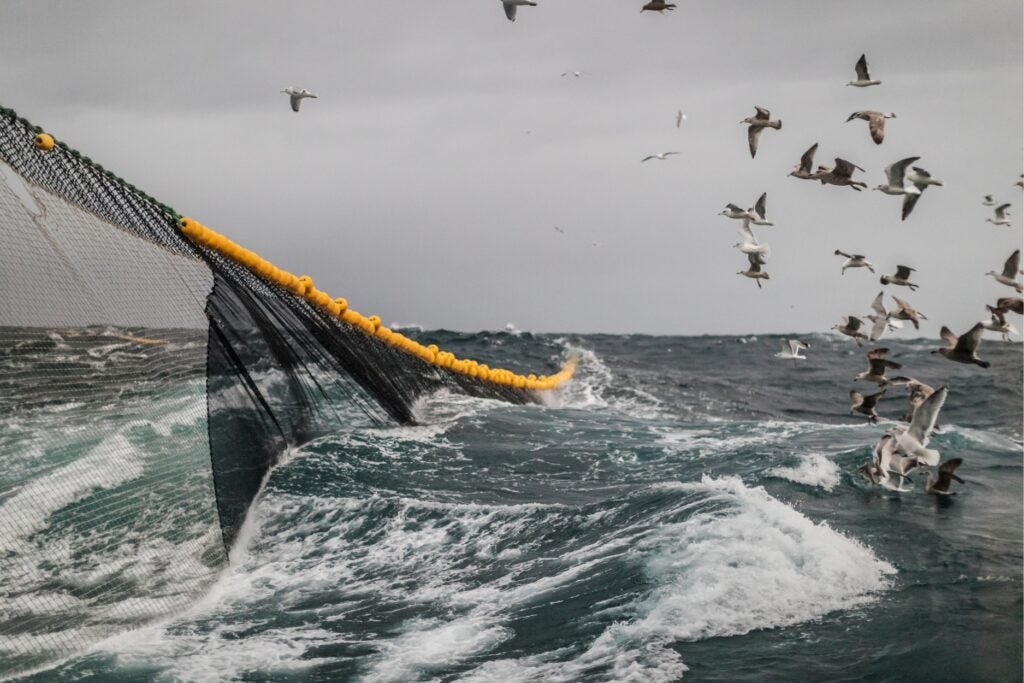October 14, 2024
Kirchoff Co-Authors Study on Industrial Fishing’s Role in Global Food Security

Dr. Jon Kirchoff, a research associate with the Bureau of Business Research (BBR) at East Carolina University’s College of Business, has co-authored a significant study on the intersection of industrial fishing and food security. The research, published in Frontiers in Ocean Sustainability, offers new insights into how large-scale fishing operations impact communities and industries, with key findings applicable to policymakers, businesses, and stakeholders in the global seafood supply chain.
The study, titled Industrial Fishing and Its Impacts on Food Security: A Systematic Review, examines over two decades of data, analyzing the nuanced effects of industrial fishing across various regions, including Africa, Southeast Asia, and the Pacific. Dr. Kirchoff and his co-authors identified four major themes that characterize the complex relationship between industrial fishing activities and food security: job creation, provision of food products, environmental impact, and competition with local fishing efforts.
The study highlights how industrial fishing creates employment opportunities in coastal communities, allowing local populations to leverage their earnings for broader food access. This economic boost is particularly crucial in regions where fishing is a primary source of income, enabling communities to diversify their diets through purchased food products.
A critical issue
A critical issue identified in the research is the environmental degradation caused by industrial fishing methods such as trawling and long-lining. These practices can lead to habitat destruction and decreased fish availability, directly impacting the sustainability of fish stocks. For industries dependent on stable seafood supplies, the findings underscore the need for adopting more sustainable fishing practices to preserve long-term viability.
The study also notes that while industrial fishing can support local markets with fish products, it often prioritizes export to distant markets, reducing the availability of fish for local consumption. This dynamic has significant implications for food security in lower-income areas, where local communities rely heavily on fish as a dietary staple.
The study emphasizes the need for more integrated research approaches. While many studies focus on either the impacts of fishing activities or food security outcomes, few provide a holistic view that combines detailed fisheries data with an understanding of community food consumption patterns. Addressing this gap could lead to more effective policies that ensure both industry growth and food security.
Dr. Kirchoff’s work represents a vital contribution to ongoing discussions about the role of industrial fishing in sustainable development and food systems. As the demand for seafood continues to grow, the study serves as a resource for governments and industry leaders looking to balance economic benefits with environmental stewardship.
For more information on the study and its implications for the fishing industry, contact Dr. Kirchoff at kirchoffj@ecu.edu or read the full report in Frontiers in Ocean Sustainability.
- Categories:
- Bureau of Business Research
- Research
